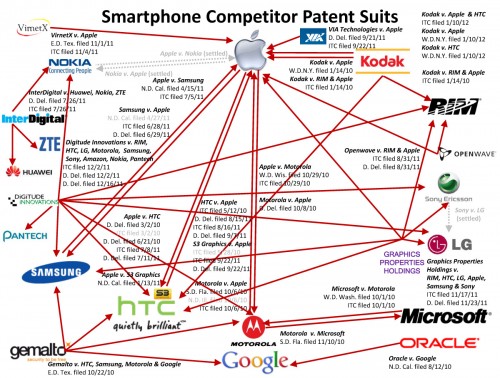Marissa Mayer Has a Secret Weapon
Fascinating!
For the past decade, she has been the doyen of a collection of some of the most talented young engineers and product managers in all of technology. These are the hand-selected prime talents of an accelerated leadership program at Google called Associate Product Manager (APM).
Mayer invented this program, led it and never gave it up. It was a key part of her tenure at Google. And now she may reap some benefits.
Don’t be fooled by the modest title, prefixed by that timid word “associate.” The most coveted entry post at Google is spelled APM. This is an incubation system for tech rock stars. “The APM program is one of our core values — I’d like to think of one of them as the eventual CEO of the company,” Google’s Executive Chair Eric Schmidt once told me.
Consider the first APM, a fresh Stanford grad named Brian Rakowski. He became a key leader of the team that built the Chrome browser and now is the VP of the Chrome operation. The second was Wesley Chan, who made Google Toolbar a success, then launched Google Analytics and Google Voice. He’s now picking winners for Google Ventures. Another early APM was Bret Taylor, who earned his bones by launching Google Maps. He left Google and co-founded Friendfeed, then become the Chief Technical Officer of Facebook.
Though not all APMs achieve such glory, they are generally recognized as elite. At any given time at Google, there are over 40 APMs active in the two-year program. And since Google has been hiring them since the early 2000s there are over 300 who have been through the program.
And the glue to the whole shebang was Marissa Mayer, who was the APM boss, mentor, den mother and role model.
Mayer thought up the program in early 2002. Google had been struggling to find PMs who could work within the peculiar company culture — team leaders who would not be bosses but work consensually with the wizards who produce code. Ideally, a Google product manger would understand the technical issues and sway the team to his or her viewpoint by strong data-backed arguments, and more than a bit of canny psychology. But experienced PMs from places like Microsoft, or those with MBAs, didn’t understand the Google way, and tried to force their views on teams.
So Mayer came up with an idea: Google would hire computer science majors who just graduated or had been in the workplace fewer than 18 months. The ideal applicants must have technical talent, but not be total programming geeks — APMs had to have social finesse and business sense. Essentially they would be in-house entrepreneurs. They would undergo a multi-interview hiring process that made the Harvard admissions regimen look like community college. The chosen ones were thrown into deep water, heading real, important product teams.

